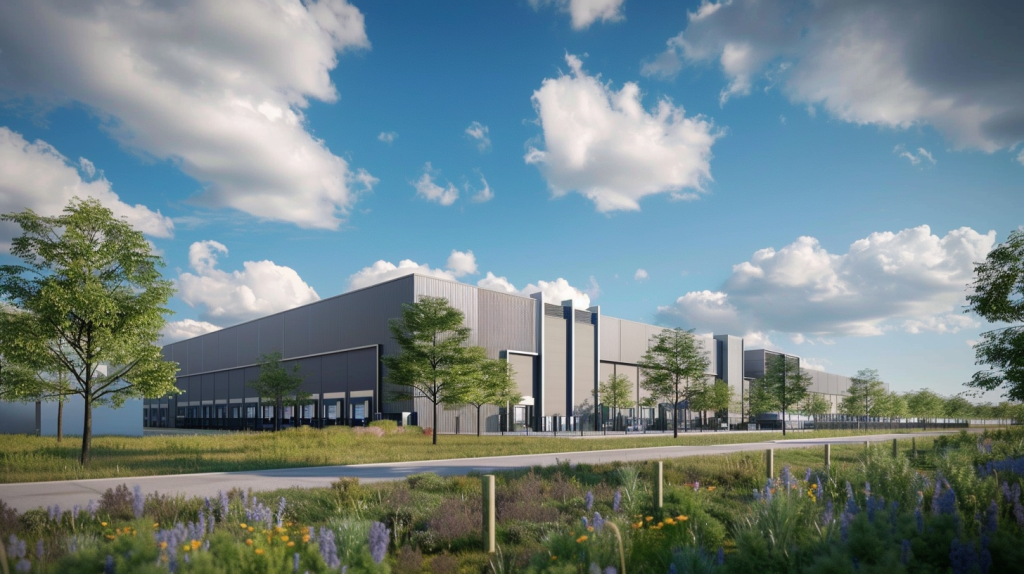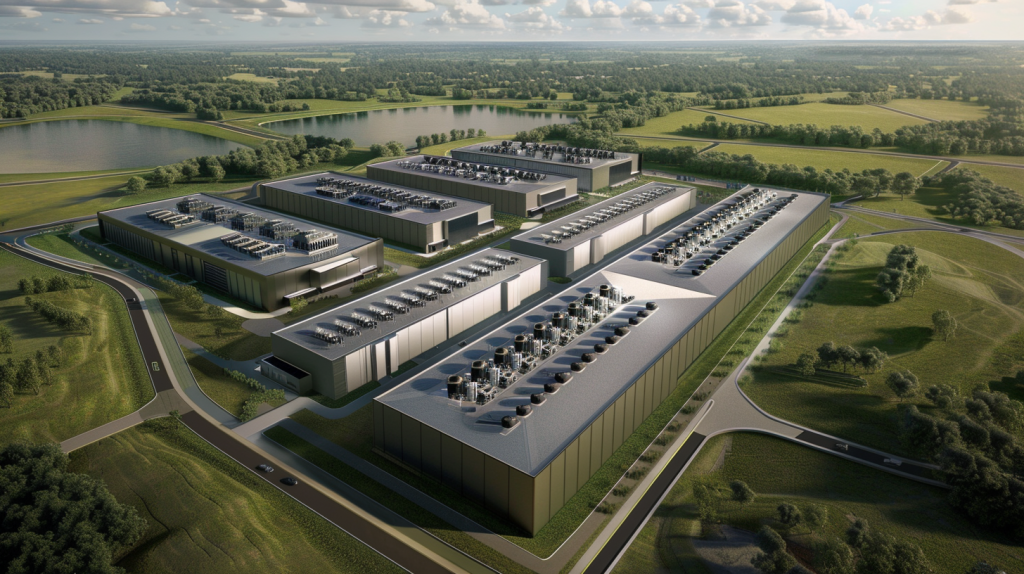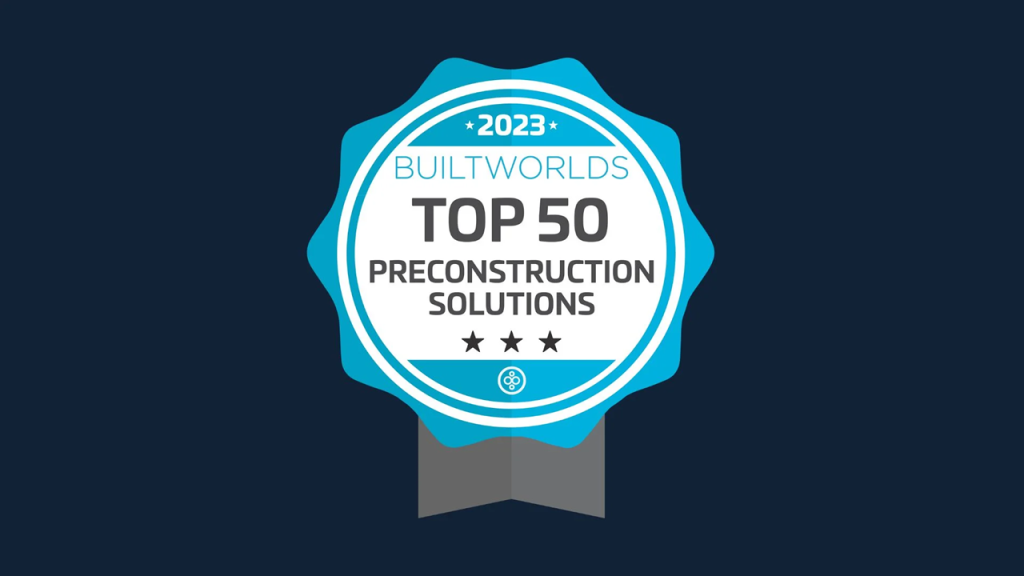Indiana’s Mega Construction Project: Meta’s $800M Data Center
Table of Contents:

How Meta’s $800M Data Center Will Transform Indiana’s Tech Landscape
Meta, the tech giant formerly known as Facebook, is once again making waves with its bold decision to build an $800 million data center campus in Jeffersonville, Indiana. This enormous facility, spanning 700,000 square feet, will not only be Meta’s 18th data center in the United States but also a pivotal development for Indiana’s growing reputation as a hub for technology and innovation.
So, what makes this project so transformative? For starters, the sheer scale of the investment is a testament to Meta’s confidence in Indiana’s potential. The state has been steadily positioning itself as an attractive destination for tech companies, thanks to its favorable business environment, skilled workforce, and robust infrastructure. Meta’s choice to plant such a significant facility in Jeffersonville signals to other tech giants that Indiana is ready for prime time.
But the impact of this data center goes far beyond the immediate economic benefits. Yes, it will create hundreds of jobs during construction and even more once operational, injecting much-needed capital into the local economy. However, the long-term implications are even more exciting. The presence of Meta in Indiana could act as a magnet for other tech companies, fostering a tech ecosystem that could rival more established hubs like Silicon Valley and Austin.

Moreover, Meta’s commitment to sustainability, with plans to achieve LEED Gold certification and operate the data center on 100% renewable energy, sets a new standard for future developments in the state. This focus on green technology could inspire other companies in Indiana to adopt more sustainable practices, further solidifying the state’s role as a leader in the tech industry.
In addition, this data center will enhance Indiana’s technological infrastructure, making it an even more attractive location for tech firms. The advanced technology and innovation brought by Meta could spur growth in local startups and provide opportunities for collaboration with Indiana’s universities and research institutions.
In essence, Meta’s $800 million data center is more than just a building—it’s a catalyst for transformation. It’s the kind of project that can elevate an entire state’s standing in the tech world, bringing new opportunities, innovation, and a brighter future for Indiana’s tech landscape.

What Makes Indiana the Perfect Location for Meta’s Data Center?
Indiana might not be the first state that comes to mind when you think of tech hubs, but Meta’s decision to build its data center here is no accident. Indiana has been making waves in the business world, thanks to its infrastructure resources, labor availability, and growing technology sector. In recent years, the state has attracted several high-profile projects, including a $3.5 billion Samsung SDI plant and a $3.2 billion Stellantis EV plant.
Meta’s decision to join this list of major investments speaks volumes about Indiana’s potential as a tech powerhouse. The state’s commitment to supporting businesses through incentives, such as the data center sales tax exemption, makes it an attractive destination for companies looking to expand.
What is a Data Center Campus?
Before we delve further into the specifics of Meta’s project, let’s take a moment to understand what a data center campus is. In simple terms, a data center campus is a large, centralized facility where a company houses its computer systems and related components, such as telecommunications and storage systems. These centers are crucial for managing data, supporting online operations, and ensuring the smooth functioning of digital services.
In Meta’s case, this data center campus in Jeffersonville will play a vital role in supporting its global operations. With the increasing demand for online services and digital platforms, the need for robust data centers has never been greater.

The Role of Turner Construction
New York City-based Turner Construction has been tapped to lead the construction of Meta’s data center in Indiana. Known for its expertise in large-scale projects, Turner Construction is no stranger to high-profile developments. The company’s involvement in this project ensures that the construction process will be handled with the utmost professionalism and attention to detail.
Starting this month, Turner Construction will begin work on the 700,000-square-foot facility, with a completion target set for 2026. This ambitious timeline reflects Meta’s commitment to getting the data center up and running as quickly as possible to meet the growing demands of its global operations.
Environmental Impact: LEED Gold Certification
Meta has made sustainability a core part of its operations, and the Jeffersonville data center will be no exception. The company plans for the campus to achieve LEED Gold certification, a prestigious recognition for buildings that meet high environmental standards. This certification process evaluates factors such as energy efficiency, water conservation, and indoor environmental quality.
In addition to achieving LEED Gold certification, Meta has committed to powering the data center with 100% renewable energy. This move aligns with the company’s broader goal of reducing its carbon footprint and promoting sustainable practices across its global operations.
Related Articles:
The Best Guide to Delivery Management Systems (DMS) for Commercial Construction
Best Guide to Construction Management Software
45 Benefits and Tips of Construction Management Software for Superintendents
Construction’s Impact: How Meta’s Data Center Will Drive Economic Growth in Indiana
Meta’s investment in Jeffersonville is not just a win for the company; it’s also a major boost for the local economy. The construction of the data center is expected to create hundreds of jobs, both during the construction phase and once the facility is operational. Additionally, the presence of such a large-scale project will attract further investment and development in the surrounding area.
Jeffersonville Mayor Mike Moore expressed his excitement about the project, stating that the economic activity generated by the data center will support every sector of the local economy. From construction to hospitality, the ripple effects of this investment will be felt throughout the community.

The Sales Tax Exemption: A Major Incentive
One of the key factors that attracted Meta to Indiana is the state’s data center sales tax exemption. Under the terms of this deal, Meta will not pay sales tax for 35 years if it invests at least $800 million into the data center. This exemption is a significant financial incentive that makes Indiana an attractive destination for large-scale tech projects.
Moreover, the deal includes provisions that allow Meta to extend this sales tax exemption for an additional five years for every $800 million it invests beyond the initial amount. This means that if Meta continues to expand its operations in Indiana, it could potentially enjoy up to 50 years of sales tax exemptions.
Comparisons to Other Meta Data Centers
Meta’s decision to invest in Indiana is part of a broader strategy to expand its data center infrastructure across the United States. The company has already undertaken similar projects in other states, including a $1 billion data center campus in Mesa, Arizona, and an $800 million data center site in Temple, Texas.
Each of these projects has been supported by various tax incentives, highlighting the importance of favorable business environments in attracting tech investments. For instance, Meta’s Kansas City, Missouri, data center project qualified for up to $1.8 billion in sales and use tax exemptions over 15 years.
The Growing Demand for Data Centers

StruxHub
Experience the power of StruxHub today and witness firsthand how it can revolutionize your construction operations.
The rise of digital platforms, cloud computing, and the Internet of Things (IoT) has fueled an unprecedented demand for data centers. As more businesses and consumers rely on online services, the need for data storage, processing, and management has skyrocketed.
Meta’s investment in the Jeffersonville data center is a direct response to this growing demand. By expanding its data center infrastructure, Meta is ensuring that it has the capacity to support its global operations and continue delivering seamless digital experiences to its users.
Why LEED Gold Certification Matters
Achieving LEED Gold certification is no small feat, and it speaks to Meta’s commitment to sustainability. But what exactly does this certification mean, and why is it important?
LEED, or Leadership in Energy and Environmental Design, is a globally recognized certification system that assesses a building’s environmental performance. To achieve LEED Gold certification, a building must meet rigorous standards in areas such as energy efficiency, water use, and materials selection.

For Meta, achieving LEED Gold certification for its Jeffersonville data center is not just about earning a badge of honor. It’s about leading by example and demonstrating that large-scale tech projects can be both economically viable and environmentally responsible.

Related Articles:
The Ultimate Guide to Construction Management Software for Superintendents
How to Choose the Top Construction Scheduling Software for Field Teams
Construction Safety 10: The Key to Keeping Construction Sites Safe, Clean, and Orderly.
The Ultimate Guide to Construction Risk Management: Top Strategies and Tools
Indiana’s Growing Tech Sector
Indiana’s success in attracting Meta’s $800 million data center is a testament to the state’s growing tech sector. Over the past few years, Indiana has made significant strides in building a robust technology ecosystem, supported by a skilled workforce, strategic location, and business-friendly environment.
The state’s commitment to fostering innovation has paid off, with several high-profile tech companies choosing to invest in Indiana. Meta’s decision to build its data center in Jeffersonville is a clear indication that Indiana is emerging as a key player in the national tech landscape.
The Impact on Local Communities
The construction of Meta’s data center is expected to have a profound impact on local communities in and around Jeffersonville. From job creation to infrastructure development, the benefits of this project will extend far beyond the walls of the data center itself.
Local businesses stand to gain from the increased economic activity, while residents will benefit from the improved infrastructure and services that often accompany such large-scale investments. In the long term, the presence of a major tech company like Meta could also attract other businesses to the area, further boosting the local economy.
Meta’s Commitment to Renewable Energy
Meta’s commitment to powering its Jeffersonville data center with 100% renewable energy is a key component of the company’s broader sustainability strategy. By investing in renewable energy sources, Meta is reducing its reliance on fossil fuels and minimizing its environmental impact.
This commitment to renewable energy is particularly important in the context of data centers, which are known for their high energy consumption. By sourcing energy from renewable sources, Meta is setting a new standard for sustainability in the tech industry.
The Future of Data Centers
As technology continues to evolve, so too will the role of data centers. In the coming years, we can expect to see data centers become even more critical to the functioning of digital services, from social media platforms to cloud computing.
Meta’s investment in the Jeffersonville data center is a forward-looking move that positions the company to meet the demands of the future. By expanding its data center infrastructure, Meta is ensuring that it has the capacity to support its users’ needs for years to come.
Why Meta’s Data Center Construction Is a Major Win for Indiana
Meta’s decision to build an $800 million data center campus in Jeffersonville, Indiana, is a game-changer for both the company and the state. For Meta, this investment represents a critical expansion of its data center infrastructure, positioning the company to meet the growing demands of its global operations. For Indiana, the project is a major win that solidifies the state’s reputation as a business-friendly destination with a growing tech sector.
As construction begins on this massive project, the benefits for both Meta and Indiana are clear. From job creation to sustainability, the Jeffersonville data center is poised to have a lasting impact on the local community and beyond.

StruxHub
Discover how StruxHub can revolutionize your construction management. Contact us today!
FAQs
1. What is the purpose of Meta’s data center in Jeffersonville?
Meta’s data center in Jeffersonville is designed to be a central hub for managing the vast amounts of data generated by the company’s global operations. This includes everything from storing and processing user information to supporting the infrastructure for Meta’s various platforms like Facebook, Instagram, and WhatsApp. By building this data center, Meta ensures that it can continue to provide fast, reliable services to billions of users worldwide. In essence, this facility is a critical piece of Meta’s global digital backbone, helping to keep everything running smoothly.
2. How will the Jeffersonville data center benefit the local economy?
The Jeffersonville data center is set to be a major boon for the local economy. During the construction phase, it will create hundreds of jobs in various sectors, including construction, project management, and engineering. Once the data center is up and running, it will require a permanent workforce, providing long-term, stable employment opportunities in the area. The influx of workers and their families will also boost local businesses, from restaurants to retail shops, contributing to the overall economic vitality of Jeffersonville. Moreover, the presence of a tech giant like Meta could attract other companies to the region, further stimulating economic growth.
3. What is LEED Gold certification, and why is it important?
LEED Gold certification is a prestigious standard that recognizes buildings designed with sustainability in mind. LEED, which stands for Leadership in Energy and Environmental Design, assesses various aspects of a building’s environmental impact, including energy efficiency, water conservation, and materials used. Achieving LEED Gold means that Meta’s data center in Jeffersonville will be among the top in its class for environmental responsibility. This certification is important because it demonstrates Meta’s commitment to reducing its carbon footprint and promoting sustainable practices. For the local community, it means having a facility that contributes positively to environmental health, setting a precedent for future developments.
4. How does Meta’s sales tax exemption work?
Meta’s sales tax exemption is part of a deal with the state of Indiana, designed to encourage large-scale investments like the Jeffersonville data center. Under this agreement, Meta will be exempt from paying sales tax on purchases related to the construction and operation of the data center for 35 years, provided it invests at least $800 million into the project. This exemption can be extended for an additional five years for every further $800 million investment, up to a total of 50 years. This arrangement not only makes Indiana an attractive place for Meta to invest but also ensures that the state benefits from the economic activity generated by such a significant project.
5. What other data center projects has Meta undertaken in the U.S.?
Meta is actively expanding its data center infrastructure across the United States to support its growing global operations. In addition to the Jeffersonville project, Meta is building a $1 billion data center campus in Mesa, Arizona, and another $800 million facility in Temple, Texas. These projects are part of Meta’s broader strategy to ensure its platforms can handle the increasing demand for online services. Each data center is strategically located to optimize network performance, reduce latency, and improve the user experience for people accessing Meta’s services across the country.

6. What are the long-term benefits of the data center for Jeffersonville?
The long-term benefits of Meta’s data center in Jeffersonville extend far beyond the initial economic boost from construction. Once operational, the data center will provide ongoing employment opportunities, contributing to the region’s economic stability. Additionally, the presence of such a significant tech facility could position Jeffersonville as a hub for future technological developments, attracting other businesses and encouraging further investment in the area. The data center’s focus on sustainability could also inspire local initiatives aimed at environmental stewardship, enhancing the overall quality of life in the community.
7. How does the data center contribute to Meta’s global operations?
Meta’s Jeffersonville data center will play a crucial role in supporting the company’s global operations. It will handle data storage, processing, and network traffic for Meta’s various platforms, ensuring that services remain fast, reliable, and scalable. As Meta continues to expand its offerings, including innovations in virtual reality and artificial intelligence, having a robust and extensive data infrastructure is essential. The Jeffersonville data center will help Meta meet the growing demands of its users worldwide, maintaining the high level of service that people expect from the company.
8. What role does Turner Construction play in this project?
Turner Construction, a renowned New York City-based firm, has been selected to lead the construction of Meta’s Jeffersonville data center. Turner is well-known for its expertise in managing large-scale, complex projects, making it the perfect partner for this ambitious development. The company will oversee all aspects of construction, from site preparation to the installation of state-of-the-art technology. Turner’s involvement ensures that the data center will be built to the highest standards, meeting Meta’s requirements for security, energy efficiency, and sustainability.
9. How does Meta plan to use renewable energy for the data center?
Meta has committed to powering its Jeffersonville data center entirely with renewable energy. This aligns with the company’s broader sustainability goals and reduces its environmental impact. To achieve this, Meta will likely engage in power purchase agreements (PPAs) with renewable energy providers, such as wind and solar farms, to ensure that the electricity used by the data center is offset by an equivalent amount of renewable energy fed into the grid. This commitment not only helps Meta achieve its sustainability objectives but also supports the growth of renewable energy industries in the region, contributing to a greener future for everyone.
10. What are the challenges of building a data center of this scale?
Constructing a data center of this magnitude presents several challenges. Firstly, the sheer size of the project—700,000 square feet—requires meticulous planning and coordination. Ensuring that the facility meets Meta’s rigorous standards for security, energy efficiency, and technological capability adds another layer of complexity. Additionally, the project must be completed on a tight schedule, with a target date set for 2026. Challenges such as supply chain disruptions, labor shortages, and unforeseen construction issues could potentially delay the project. However, with Turner Construction at the helm, these challenges are being managed effectively, ensuring that the data center is built on time and within budget.
11. What makes Indiana an attractive location for data centers?
Indiana offers several advantages that make it an appealing location for data centers. The state has a favorable business environment, with tax incentives like the data center sales tax exemption that make large-scale investments more financially viable. Indiana’s central location in the U.S. also provides excellent connectivity to major markets, which is crucial for data center operations. The state boasts a reliable power grid, and there’s a growing focus on renewable energy, aligning with Meta’s sustainability goals. Additionally, Indiana has a skilled workforce and strong educational institutions that support the technology sector, making it easier for companies to find the talent they need.
12. How will the data center impact the local real estate market?
The construction of Meta’s data center in Jeffersonville is likely to have a significant impact on the local real estate market. As workers move to the area to support the project, demand for housing is expected to increase, potentially driving up property values and encouraging new residential developments. Additionally, the influx of professionals may boost demand for commercial real estate, including office spaces, retail outlets, and hospitality services. Over time, the presence of a major tech company like Meta could attract other businesses to the area, further stimulating the real estate market and contributing to the overall growth and development of Jeffersonville.
13. How does Meta ensure data security at its data centers?
Data security is a top priority for Meta, and the Jeffersonville data center will feature multiple layers of protection. Physical security measures include biometric access controls, 24/7 surveillance, and secure perimeters to prevent unauthorized access. Inside the facility, advanced encryption technologies will protect data both at rest and in transit. Meta also employs a dedicated team of cybersecurity experts who monitor the data center’s operations around the clock, ensuring any potential threats are identified and addressed immediately. Regular security audits and rigorous testing further enhance the security of Meta’s data centers, ensuring that user information is safeguarded at all times.
14. What is the expected timeline for the completion of the data center?
The construction of Meta’s Jeffersonville data center is set to begin this month, with completion expected by 2026. This timeline reflects the scale and complexity of the project, which involves building a 700,000-square-foot facility equipped with the latest technology. Over the next few years, Turner Construction will oversee the development, ensuring that everything is on track to meet the deadline. While large-scale projects often face challenges that could potentially delay completion, Meta and Turner are committed to staying on schedule, so the data center can start contributing to Meta’s global operations as planned.
15. How does Meta’s investment in Jeffersonville compare to other tech investments in Indiana?
Meta’s $800 million investment in Jeffersonville is one of the largest tech-related projects in Indiana’s recent history, but it’s not the only significant investment. The state has attracted several high-profile projects in recent years, including a $3.5 billion Samsung SDI plant and a $3.2 billion Stellantis EV plant. These investments highlight Indiana’s growing reputation as a tech and manufacturing hub. However, Meta’s project stands out due to its scale and focus on digital infrastructure, which positions Indiana as a key player in the tech industry’s ongoing expansion. The success of this project could lead to further tech investments in the state, solidifying its position as a top destination for technology companies.
16. What sustainability initiatives are part of the data center project?
Sustainability is at the core of Meta’s Jeffersonville data center project. In addition to achieving LEED Gold certification, the data center will be powered entirely by renewable energy, significantly reducing its carbon footprint. Meta is also likely to implement advanced cooling technologies to minimize water usage and energy consumption, further enhancing the facility’s environmental performance. The use of sustainable building materials and waste reduction strategies during construction will also contribute to the project’s overall sustainability goals. These initiatives align with Meta’s broader commitment to environmental stewardship and set a high standard for future data center developments.
17. How does the data center contribute to Meta’s broader strategy?
The Jeffersonville data center is a key component of Meta’s broader strategy to expand its global infrastructure. As the demand for digital services continues to grow, Meta needs to ensure that it has the capacity to handle increasing amounts of data while maintaining high levels of performance and reliability. This data center will enhance Meta’s ability to deliver fast, seamless experiences to users worldwide, supporting everything from social media interactions to virtual reality applications. Additionally, by investing in sustainable and scalable infrastructure, Meta is positioning itself for long-term growth, ensuring that it can continue to innovate and lead in the tech industry.

18. What is the significance of the River Ridge Commerce Center location?
The River Ridge Commerce Center in Jeffersonville is a prime location for Meta’s new data center. This 619-acre site has been strategically reserved for a major development like this, and Meta’s investment is a testament to the careful planning and foresight that went into selecting this location. The Commerce Center offers excellent infrastructure, connectivity, and access to major transportation routes, making it an ideal site for a data center. Additionally, the location is part of a larger economic development strategy aimed at attracting high-tech industries to the region, further boosting the area’s economic prospects.
19. What is the role of the local government in facilitating the data center project?
Local government has played a crucial role in facilitating Meta’s data center project in Jeffersonville. The Indiana Economic Development Corporation (IEDC) has been instrumental in providing the necessary incentives, including the sales tax exemption, to attract Meta to the state. Local officials have also worked closely with Meta to ensure that the project aligns with the community’s needs and economic development goals. Jeffersonville Mayor Mike Moore has expressed strong support for the project, highlighting its potential to boost the local economy and create jobs. This collaboration between Meta and local government is a model for how public-private partnerships can drive economic growth and innovation.
20. How will the data center impact local infrastructure?
The construction and operation of Meta’s data center will have a significant impact on local infrastructure in Jeffersonville. During the construction phase, there may be an increase in traffic, particularly from construction vehicles and workers commuting to the site. However, local authorities are likely to implement measures to manage this increased traffic and minimize disruption. Once operational, the data center will require robust power and water supply systems, which could lead to upgrades and improvements in local utilities. Additionally, the data center’s reliance on renewable energy could drive further investments in green infrastructure, benefiting the wider community. Overall, while there will be some short-term challenges, the long-term impact on local infrastructure is expected to be positive, with improvements that will serve the community for years to come.
Empowering Your Team with StruxHub
Ongoing training and support are essential for empowering construction teams and ensuring project success. By investing in comprehensive training programs, promoting continuous learning, and providing dedicated support services, StruxHub helps construction professionals maximize software utilization and achieve better project outcomes. Embrace these tips and strategies to empower your team and drive project success.
StruxHub enhances efficiency and coordination across all project phases, providing a single source of truth that eliminates silos and fosters collaboration. Real-time updates, financial management tools, and seamless commvunication features ensure that all team members and stakeholders are aligned and informed, reducing the risk of errors and delays. With comprehensive solutions for document management, risk mitigation, and quality control, StruxHub maintains project integrity and safety, while mobile access and integration capabilities further enhance project flexibility and efficiency.
StruxHub’s Key Features and Benefits:
- Advanced Delivery Management: Automate and optimize your delivery schedules, ensuring materials arrive just in time, every time.
- Site Communication: Utilize georeferenced maps and instant messaging to keep every team member informed and aligned.
- Construction Materials Management: Track inventory levels and manage materials procurement with ease, reducing waste and avoiding project delays.
- Construction Safety & Inspection Workflows: Implement customizable mobile forms for conducting safety inspections and managing compliance documentation effortlessly.
- Short-Term Scheduling: Visualize project tasks with detailed floor plans, linking each activity to specific locations for better planning accuracy.
- Construction Resource Management: Efficiently allocate personnel and equipment, maximizing productivity and reducing idle time.
StruxHub’s Product Offering:
- StruxHub Deliveries: Simplifies the coordination of incoming deliveries, ensuring materials and equipment are precisely timed to project needs.
- StruxHub Logistics: Offers intelligent site logistics planning, from crane scheduling to space allocation, for smoother operations.
- StruxHub Safety: Elevates on-site safety standards with easy-to-use tools for inspections, permits, and incident reporting.
- StruxHub Scheduling: Enhances project timelines with intuitive scheduling tools that ensure tasks are completed efficiently and on time.
With StruxHub, construction companies can look forward to a streamlined, more efficient project execution that delivers on time and within budget. Embrace the power of innovation and take your construction projects to the next level.
Don’t miss out on the opportunity to optimize your construction management processes with StruxHub. Sign up for a free demo today. Let’s build smarter, together.




